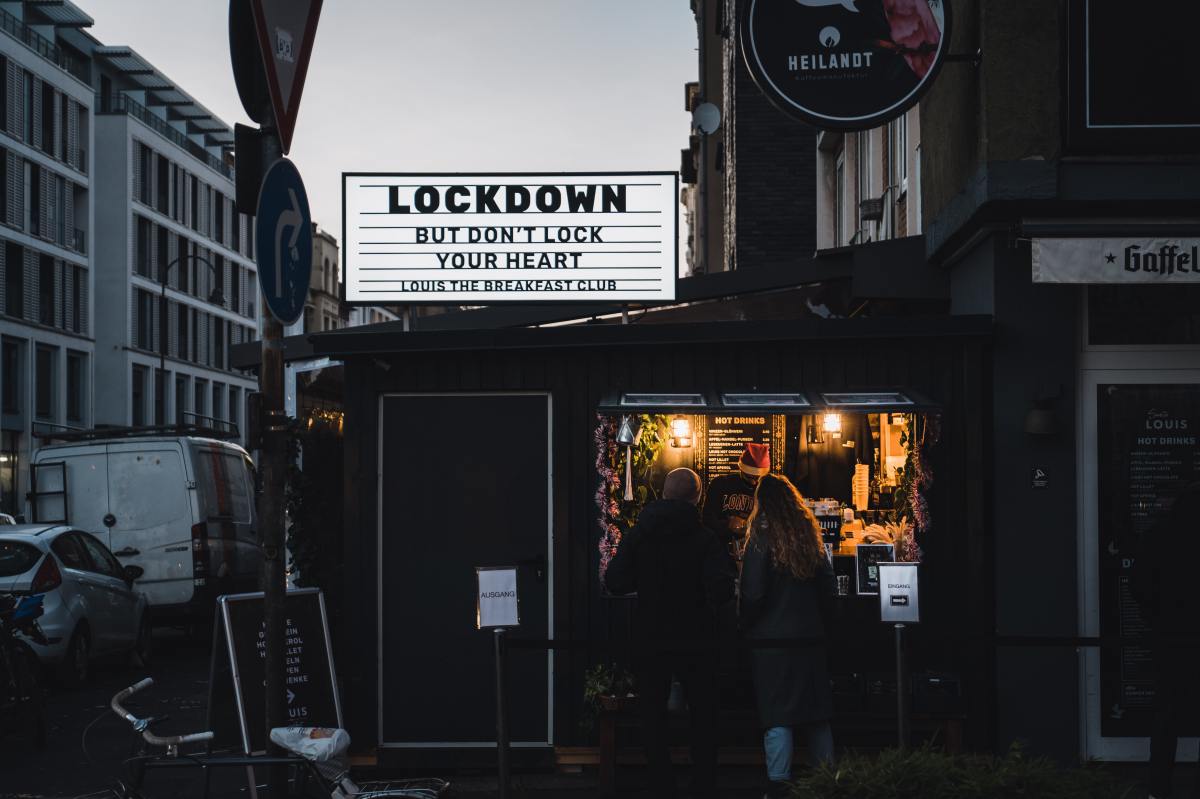One of the most thrilling aspects of being part of the art world is also the most difficult to recover right now: the unexpected. Accidental encounters. Serendipitous moments. Unexpected experiences.
When we visit a gallery, a theatre or a live music venue, we go in on the premise that we’re about to experience something we’ve never experienced before. That’s why we go.
More than that: we’re the kinds of people whose relationships with one another are premised on expecting the unexpected.
As a community, we share our work with one another. We actively seek out critique. We go and see one another’s shows and buy one another’s work.
Our collaborations, our deep friendships, as well as our relationships with our audiences, are premised on taking each other by the hand – or, daring one another! – to experience something we know is going to be moving, surprising or exhilarating.
So important is the unexpected to what makes us who we are that last week, the ACT Chief Minister announced ‘non-organised recreation’ as a specific feature of allowable activity as ACT restrictions begin to ease.
WHAT ABOUT ALL THOSE ONLINE PIVOTS?
Online, we can experience great work – the online pivots of an entire world. It’s true. And for those of us with disabilities, we can access far more than ever before. But all of those experiences are programmed, they’re of finite duration, and they exist within familiar surroundings.
There’s no running into someone, no festival club, no public space to encounter public art and installation, no seeing the expressions on one another’s faces in a new light.
Experiencing work online within our home spaces can make it very easy to retreat back into familiar narratives. How many old movies have you seen? How many reruns have you binged?
The familiar makes us feel safe, comforted, but it’s the unexpected encounter that builds our confidence and strengthens our resilience.
The ways we respond to work – talking about it in the gallery, dissecting intricate theatre over supper, or just feeling our bodies respond as we smile, move, dance – all of our responses explore our emotions and deepen our humanity.
Read more: Celebrating creativity on social media during a pandemic
RECLAIMING ACTIVE CITIZENSHIP
Think about what’s meant by ‘soft skills’ in critical thinking and creative analysis. It’s the ability to think for yourself. To seek out the unexpected quite actively. To make it, to craft it, to test it, to perform and to share it.
These are, of course, also the attributes of engaged citizenship. An enquiring mind. A strong sense of community. A readiness to critique and to respond. It’s the very opposite of conservatism.
Which is why we need unexpected encounters in our lives now more than ever.
So how do we make sure we don’t lose them? Here are three small ways.
1. RESET YOUR SENSES
Let’s turn to the experts: experimental artists, spatial practitioners and Situationists.
Find new ways to explore the familiar.
Seek out a set of instructions. Follow a bike path. Find a new choreography.
Map out your home.
Embark on a dérive. Take Guy Debord’s lead and explore your neighbourhood as though each structure or texture were indicating the next. Without making a plan, make a new map. What becomes more important? What have you never noticed before?
Go out and explore. Write down every sound. Draw every angle. Identify every scent.
Stay home and explore. Map out your space and question its purpose. Find new nooks.
Move slowly. Move quickly. Move purposefully. Move without focus.
Let’s reset our senses so that we’re ready for the next iteration of public space.
2. LET’S PLAY
Working in similar postures frames our experience with the same scope of ideas and range of emotions. By working the hands differently, we redistribute our thinking.
It’s time to play.
Sit down with a favourite sculpture or ceramic or textile work – take a few, and sit them down on the floor with you. Explore them with your hands. Feel their textures. Stretch out your legs and feel your muscles respond as your posture shifts. Close your eyes. Wonder at how different materials have different temperatures.
Find the latest work by your favourite urban play practitioners. Download the app and venture out. Start with Troy Innocent’s 64 Ways of Being, if you’re in Melbourne, or investigate augmented reality near you via your favourite app platform.
Or stay lowfi. Find a postcard, or something that doubles up as a postcard, address it to a friend, and send them a clear instruction for something they must find, make or perform when they receive your card.
Create your own rules. Play your own way.
3. BE THE RANDOM ELEMENT
Are you in a COVID-free state that’s not locked down? This one’s for you!
Send a friend, a collaborator or a colleague an unexpected message, linking them to a work that’s moved you.
Maybe it’s recent, maybe it’s from years ago – as long as it’s something they wouldn’t be expecting to receive.
But don’t just tag them into socials; you don’t want that serendipitous experience framed by doomscrolling. Frame it instead within the contexts that make your relationship unique.
Send them an email or a text, oooh even a phone call! Maybe leave an audio message, so that your voice can convey with your own passion exactly what it’s meant to you. Or send them a package – everyone loves a package! – with something you’ve made or half-made, so that their hands complete the work.
Now more than ever, we need to find ways to play, connect, and do what artists do best: offering the experience of a work of art that inspires an instinctive and deeply human response. An unexpected encounter.





